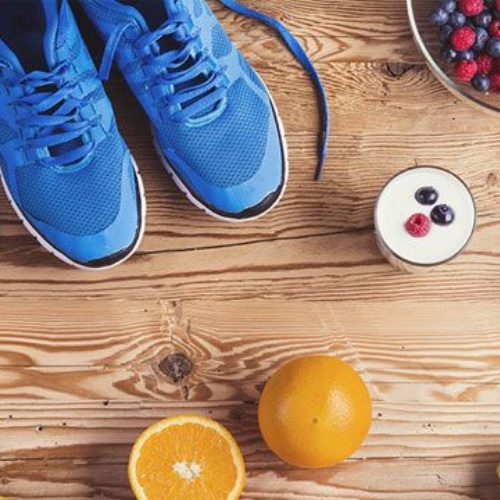
Nutrition for sporting performance, as well as academic abilities, is extremely important. Resident Graduate Assistant, George King recently completed a Masters in Sports Science and is a qualified Strength and Conditioning Coach.
George gives us the low-down on nutritional basics and advice.
“As a practitioner in the field of sports science, a vital role and responsibility is educating athletes on the importance of nutrition for performance. After all, how many times does an athlete eat a week compared to how many times they train? Just as a car cannot function without fuel, humans cannot function without food and water.
Start off right
An athletes’ first meal of the day is literally breaking your fast (i.e. overnight fast whilst sleeping) and is a reason why it is commonly regarded as the most important meal of the day. It is an opportunity to fuel-up you for the day ahead.
What to eat?
A high-protein breakfast should be the aim. A lean source of protein such as eggs is recommended to keep you feeling full throughout the morning.
For training and performance, a breakfast containing a carbohydrate and protein mix is a great way to set a foundation going into a sporting fixture. This would equate to a large bowl of porridge with milk, with a high-protein yogurt topped with fruit or some scrambled eggs on toast.
Not only do students require food to excel on the pitch but, in younger children, skipping breakfast has been associated with decreased academic performance.
Stay hydrated
It is well documented that a state of dehydration leads to reduced athletic performance, headaches and also an increase in the risk of soft tissue injury.
Furthermore, it reduces focus and decision making which can affect students’ performance in lessons. Therefore, a minimum of 2.5 litres a day is recommended regularly sipping throughout the day. That said, this recommendation will increase depending on activity levels and other factors such as weather conditions. In fact, when some individuals feel hungry, this is not because they require food but because they are dehydrated.
What to limit
Every calorie consumed will have an effect on our performance. Whether that is positively or negatively. Foods high in fat such as sausages and chocolate biscuits prior to exercise should be avoided at all costs, as these take longer to break down and are therefore not readily available to fuel our working muscles.
Additionally, processed and fried foods such as chips should also be avoided. This is due to the fact that they slow the emptying of the stomach and have been evidenced to make athletes feel slow and heavy.”
Find out more about our approach to sports performance - get in touch.
